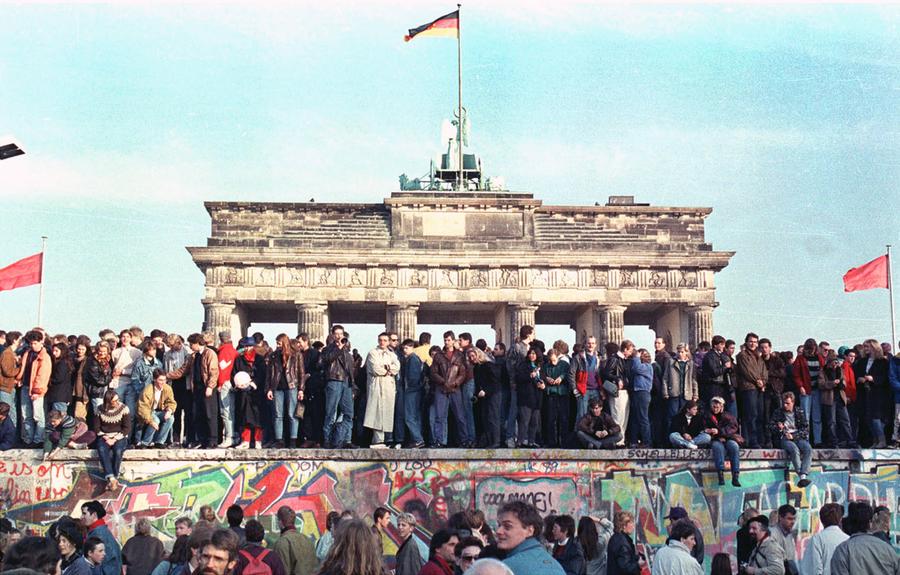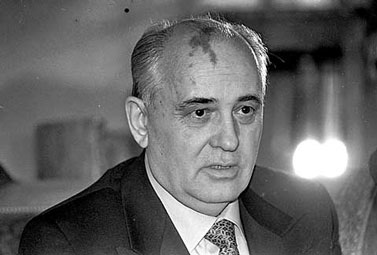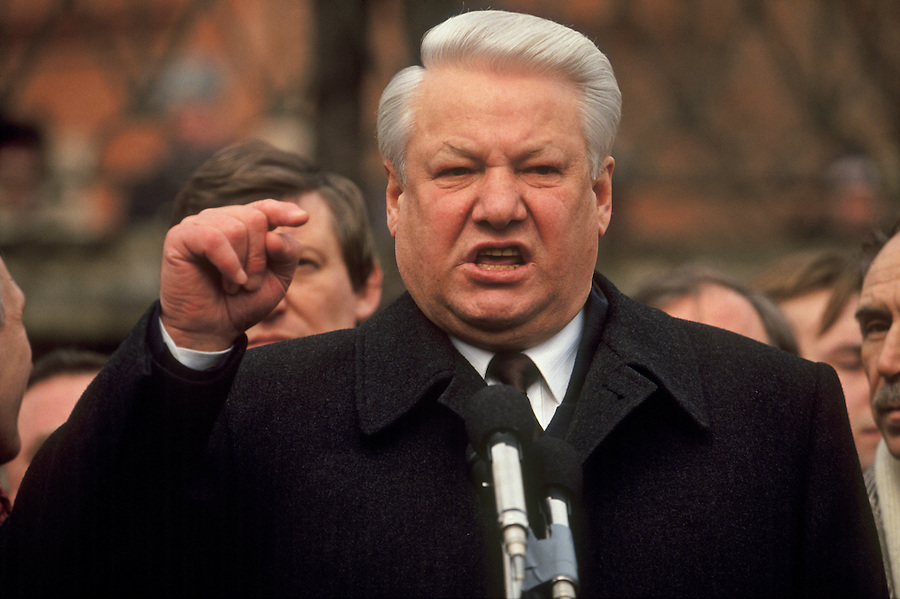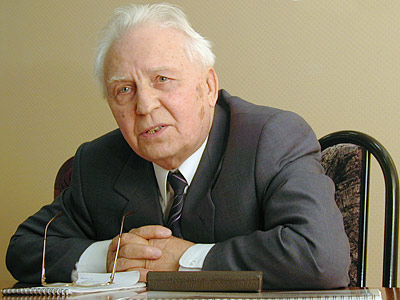An Oklahoman
Banned
Crisis in the Kremlin: An Alternative Cold War Timeline
By Konrad Karl Sartorius
Chapter 1
November 9, 1989
Border Crossing, East Berlin, DDR
“You cannot remain slaves forever.”
-Willy Brandt
As Erich Ludendorff looked out at the scene before him, he was dizzied by what he was witnessing. Thousands of citizens of the DDR were doing something that he had once thought unimaginable. They were climbing atop the Berlin Wall. Perhaps more shockingly, Erich and his fellow border guards weren’t doing anything to stop them. Not that he minded. Erich had always feared the day would come when he would be ordered to fire upon a “deserter of the Republic.” He always prayed that day would never come, and as he looked out at the sight before him he felt that he would never have to worry about that nightmare ever again.
How wrong he was.

Later that night
Office of the Head of the KGB, Lubyanka Building, Moscow, USSR
Vladimir Kryuchkov sat in his office fuming. The reports he had received coming out of Berlin were true. The Soviet Union’s ally in Berlin had made the foolish move of opening their border to unlimited emigration, and now the fears of decades of Warsaw Pact leaders were coming true. A flood of humanity was crossing over to the west.
“The damned fools,” he thought to himself. Decades spent constructing Socialism were now being erased over the course of months, if not weeks. Looking out his window towards the looming fortress of the Kremlin, Kryuchkov wondered aloud, “What are you doing, Gorbachev?”
Everyday, the world seemed to be changing. Everyday, the Forces of Socialism were being undercut and deposed from within by “People Power” revolutions. Everyday, the forces of the West moved closer to being on the doorstep of the Rodina. Everyday, a Second Barbarossa at the hands of the American Cowboys became more possible. “And,” thought Kryuchkov “if the fools who have infested the Kremlin won’t take the steps necessary to defend our nation, and our allies, then perhaps someone else needs to inhabit the Kremlin.”
With that thought in mind, the KGB Chief sat down at his desk and began to formulate a plan to turn back the clock and halt the so-called “winds of change.”

November 18, 2002
Atlanta, Georgia, USA
CNN Anchor: It was just over a decade ago when the infamous events of “Black November” broke out across Eastern Europe. Fearing that the momentous changes occurring in the Warsaw Pact, would lead to a global collapse of Communism, a group of generals and high-ranking Communist party members seized power in a coup. Moving to roll back the clock, they unleashed a crackdown across the Communist Bloc. The face of this “Evil Empire” in the West was Alexander Ivanov*, a then little known Soviet diplomat who replaced the pro-reform Shevardnadze. Since his half a decade stint as the Foreign Minister of the Soviet Union in the early 1990s, he has lived a life of seclusion, not granting a single interview to western media. However, for the first time in nearly a decade, CNN was able to obtain an exclusive interview. Here’s a sneak peak:
*Flashes to interview*
Seated across from the CNN Journalist is Alexander Ivanov, a short, pudgy, wheelchair bound Russian man, 70 years of age. Hidden behind a pair of wire rimmed shades are a pair of beady blue eyes. His left arm lays limp at his side, his disabilities due to what he claims is the consequence an injury he suffered as a Red Army soldier in the 1956 Hungarian Uprising.
CNN Interviewer: ...As the Berlin Wall was opening up on November 9th, 1989, many people thought that this meant the end of the Cold War. However, as you know, sir, that didn’t happen. General Secretary Gorbachev was deposed by a hard-line coup, which proceeded to launch a bloody crackdown across Eastern Europe. Why did you, Mr. Ivanov, support the violent removal of Gorbachev?
Ivanov: Before I answer that, allow me to establish some facts. I, for one, don’t appreciate propaganda and deception-
CNN Interviewer: What I have told you are simple facts, sir
IVanov: Excuse me! Last time I checked I’m the one who was asked the question! Therefore, I will answer it! Furthermore, we aren’t entitled to our own sets of facts, eh?! If you are merely going to recite the script you “journalists” have been given, then there is no point in me giving this interview. Ok?
CNN Interviewer: (clearly annoyed) Please continue.
Ivanov: To answer your question, Comrade Gorbachev wasn’t overthrown. I, as a member of the Soviet government, couldn’t fathom committing such a treason against him. Over the course of late 1989, his mental faculties were failing due to the stress of managing the momentous changes that were going on in our country and around the world. He realized what was happening to him so he retired, and voluntarily ceded power to a committee of Soviet leaders who would manage the country during these momentous times.
Now to answer your second question. The Soviet government acted with incredible restraint in dealing with the crises in our country and our Socialist Brother nations.
CNN Interviewer: There are a couple hundred million people in Eastern Europe who can testify to the contra-
Ivanov: Don’t interrupt me! Were there excesses committed? Yes! Would I have handled the situation slightly differently? Absolutely! But that doesn’t change the fact that our nation was falling apart. In the 1800s, when your southern citizens attempted to secede, did Pres. Lincoln sit back and let the Union get dissolved?
CNN Interviewer: No, but that’s different.
Ivanov: How? A members of your nation was trying to illegally destroy your government, and so you crushed them violently. What we did was no different! It is only natural to try to preserve one’s country against violent reactionaries trying to usurp power. Furthermore, all across Socialist Europe, violence was breaking out and our Socialist brothers were crying out for protection from fascist mobs. You may not like the methods employed, but when a fire breaks out in your neighbor's house, you help him put it out, lest it consume you too!
CNN Interviewer: As of when Gorbachev was deposed, not a single person had been killed in Eastern Europe due to the political upheavals of 1989. How can you argue that there was mass bloodshed, when not a single fatality had been recorded?
Ivanov: There you go again! The Soviet Union and her ally in the German Democratic Republic have proven, repeatedly, that there were violent shootings at their border guards on the Anti-Fascist Protection Rampart in Berlin.
CNN Interviewer: You mean the Berlin Wall which was built to keep people in East Germany against their will.
Ivanov: So when America thinks about building a wall on it’s border, it’s okay, because it’s designed to protect “national security” and to keep people “out.” But when the German Democratic Republic builds a defensive wall on it’s border, it’s a tragedy and some form of human rights abuse? I love the hypocrisy that exists in America. It’s truly unique.
*Flashes back to CNN Newsroom*
CNN Anchor: You can catch more of that exclusive interview with Alexander Ivanov tonight at 9 PM EST.
Now on to our other news stories. Scientists in Scotland have found in a new report that sheep’s bowel movements are an indicator of …
*Ivanov is a fictitious stand-in for a wide variety of Soviet hardliners.
By Konrad Karl Sartorius
Chapter 1
November 9, 1989
Border Crossing, East Berlin, DDR
“You cannot remain slaves forever.”
-Willy Brandt
As Erich Ludendorff looked out at the scene before him, he was dizzied by what he was witnessing. Thousands of citizens of the DDR were doing something that he had once thought unimaginable. They were climbing atop the Berlin Wall. Perhaps more shockingly, Erich and his fellow border guards weren’t doing anything to stop them. Not that he minded. Erich had always feared the day would come when he would be ordered to fire upon a “deserter of the Republic.” He always prayed that day would never come, and as he looked out at the sight before him he felt that he would never have to worry about that nightmare ever again.
How wrong he was.

Later that night
Office of the Head of the KGB, Lubyanka Building, Moscow, USSR
Vladimir Kryuchkov sat in his office fuming. The reports he had received coming out of Berlin were true. The Soviet Union’s ally in Berlin had made the foolish move of opening their border to unlimited emigration, and now the fears of decades of Warsaw Pact leaders were coming true. A flood of humanity was crossing over to the west.
“The damned fools,” he thought to himself. Decades spent constructing Socialism were now being erased over the course of months, if not weeks. Looking out his window towards the looming fortress of the Kremlin, Kryuchkov wondered aloud, “What are you doing, Gorbachev?”
Everyday, the world seemed to be changing. Everyday, the Forces of Socialism were being undercut and deposed from within by “People Power” revolutions. Everyday, the forces of the West moved closer to being on the doorstep of the Rodina. Everyday, a Second Barbarossa at the hands of the American Cowboys became more possible. “And,” thought Kryuchkov “if the fools who have infested the Kremlin won’t take the steps necessary to defend our nation, and our allies, then perhaps someone else needs to inhabit the Kremlin.”
With that thought in mind, the KGB Chief sat down at his desk and began to formulate a plan to turn back the clock and halt the so-called “winds of change.”

November 18, 2002
Atlanta, Georgia, USA
CNN Anchor: It was just over a decade ago when the infamous events of “Black November” broke out across Eastern Europe. Fearing that the momentous changes occurring in the Warsaw Pact, would lead to a global collapse of Communism, a group of generals and high-ranking Communist party members seized power in a coup. Moving to roll back the clock, they unleashed a crackdown across the Communist Bloc. The face of this “Evil Empire” in the West was Alexander Ivanov*, a then little known Soviet diplomat who replaced the pro-reform Shevardnadze. Since his half a decade stint as the Foreign Minister of the Soviet Union in the early 1990s, he has lived a life of seclusion, not granting a single interview to western media. However, for the first time in nearly a decade, CNN was able to obtain an exclusive interview. Here’s a sneak peak:
*Flashes to interview*
Seated across from the CNN Journalist is Alexander Ivanov, a short, pudgy, wheelchair bound Russian man, 70 years of age. Hidden behind a pair of wire rimmed shades are a pair of beady blue eyes. His left arm lays limp at his side, his disabilities due to what he claims is the consequence an injury he suffered as a Red Army soldier in the 1956 Hungarian Uprising.
CNN Interviewer: ...As the Berlin Wall was opening up on November 9th, 1989, many people thought that this meant the end of the Cold War. However, as you know, sir, that didn’t happen. General Secretary Gorbachev was deposed by a hard-line coup, which proceeded to launch a bloody crackdown across Eastern Europe. Why did you, Mr. Ivanov, support the violent removal of Gorbachev?
Ivanov: Before I answer that, allow me to establish some facts. I, for one, don’t appreciate propaganda and deception-
CNN Interviewer: What I have told you are simple facts, sir
IVanov: Excuse me! Last time I checked I’m the one who was asked the question! Therefore, I will answer it! Furthermore, we aren’t entitled to our own sets of facts, eh?! If you are merely going to recite the script you “journalists” have been given, then there is no point in me giving this interview. Ok?
CNN Interviewer: (clearly annoyed) Please continue.
Ivanov: To answer your question, Comrade Gorbachev wasn’t overthrown. I, as a member of the Soviet government, couldn’t fathom committing such a treason against him. Over the course of late 1989, his mental faculties were failing due to the stress of managing the momentous changes that were going on in our country and around the world. He realized what was happening to him so he retired, and voluntarily ceded power to a committee of Soviet leaders who would manage the country during these momentous times.
Now to answer your second question. The Soviet government acted with incredible restraint in dealing with the crises in our country and our Socialist Brother nations.
CNN Interviewer: There are a couple hundred million people in Eastern Europe who can testify to the contra-
Ivanov: Don’t interrupt me! Were there excesses committed? Yes! Would I have handled the situation slightly differently? Absolutely! But that doesn’t change the fact that our nation was falling apart. In the 1800s, when your southern citizens attempted to secede, did Pres. Lincoln sit back and let the Union get dissolved?
CNN Interviewer: No, but that’s different.
Ivanov: How? A members of your nation was trying to illegally destroy your government, and so you crushed them violently. What we did was no different! It is only natural to try to preserve one’s country against violent reactionaries trying to usurp power. Furthermore, all across Socialist Europe, violence was breaking out and our Socialist brothers were crying out for protection from fascist mobs. You may not like the methods employed, but when a fire breaks out in your neighbor's house, you help him put it out, lest it consume you too!
CNN Interviewer: As of when Gorbachev was deposed, not a single person had been killed in Eastern Europe due to the political upheavals of 1989. How can you argue that there was mass bloodshed, when not a single fatality had been recorded?
Ivanov: There you go again! The Soviet Union and her ally in the German Democratic Republic have proven, repeatedly, that there were violent shootings at their border guards on the Anti-Fascist Protection Rampart in Berlin.
CNN Interviewer: You mean the Berlin Wall which was built to keep people in East Germany against their will.
Ivanov: So when America thinks about building a wall on it’s border, it’s okay, because it’s designed to protect “national security” and to keep people “out.” But when the German Democratic Republic builds a defensive wall on it’s border, it’s a tragedy and some form of human rights abuse? I love the hypocrisy that exists in America. It’s truly unique.
*Flashes back to CNN Newsroom*
CNN Anchor: You can catch more of that exclusive interview with Alexander Ivanov tonight at 9 PM EST.
Now on to our other news stories. Scientists in Scotland have found in a new report that sheep’s bowel movements are an indicator of …
*Ivanov is a fictitious stand-in for a wide variety of Soviet hardliners.
Last edited:









